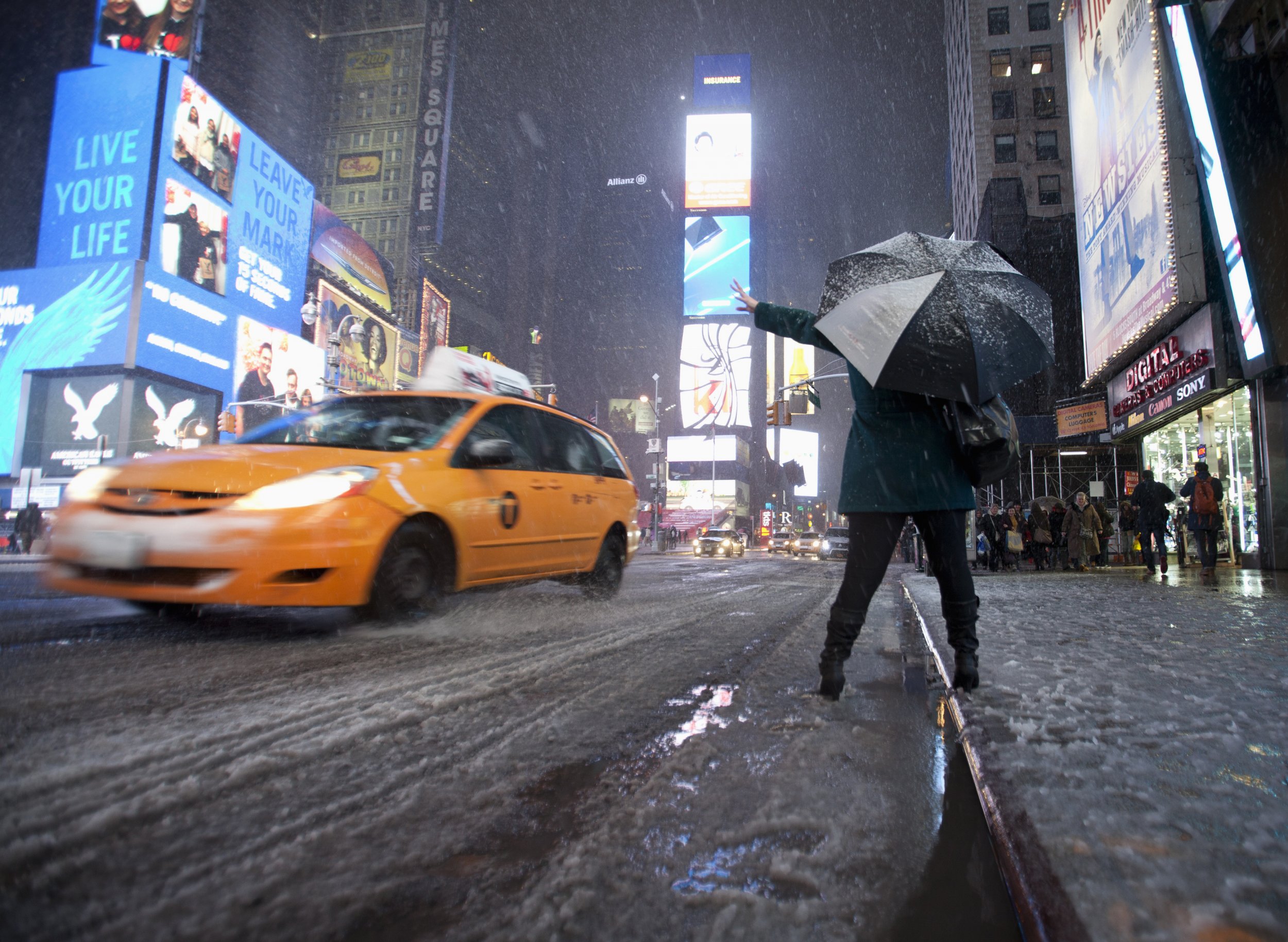
African-Americans booking a trip with the popular ride services Uber or Lyft are waiting up to 35% longer for trips and getting more cancellations than white riders, according to an analysis of rides and riders in Boston and Seattle. The cancellations might be an even bigger problem for men trying to get rides in sparsely populated areas.
The analysis, published Monday by the the National Bureau of Economic Research ,a think tank in Cambridge, MA, suggests that African-Americans face a pattern of discrimination, but only from some drivers.
"It's important to emphasize that this is not Uber and Lyft discriminating against passengers — this is individual behavior," says Stephen Zoepf, executive director of Stanford's Center for Automotive Research and one of the researchers involved in the study. And the absolute wait times were small--often under five minutes for passengers of either race.
Taxi drivers refusing to stop for certain passengers or to take them to particular neighborhoods have provoked outrage on the part of many a curbside cab hailer for years. But the authors of the new study say they are the first to find similar discrimination in the ride-sourcing or e-hailing companies Uber and Lyft.
Uber and Lyft see as many as 19.4 million users in the U.S. each month. Their popularity derives largely from lower fares and convenience. Passengers key in their desired destination using a smartphone app, which matches them with drivers in the area. The app is tied to credit card information, so travelers never have to fish around their wallets for the right fare, making the ride an often seamless affair.
While these re-invented taxi services may have eliminated the need for cash, the new research suggests they've been less successful at stamping out discrimination. Travelers with African-American-sounding names like Aisha, Darnell and Rasheed were twice as likely to have a driver accept their ride request and later cancel it. It happened about 10 percent of the time with African-Americans, compared to half that for passengers with white-sounding names like Allison, Brad and Todd. For African-American males trying to get a ride in sparsely populated areas of Boston, the cancellations tripled.
The researchers based their conclusions on two sets of separate, but related, experiments. In Seattle, a team of white and African-American research assistants spent six weeks requesting rides along predetermined routes in neighborhoods that varied by income level, geographic makeup and population density. A similar team in Boston did the same, except this time each research assistant requested rides using two different names: one that was "distinctively black" and the other more "white sounding." A total of 1,341 rides were made — 668 in UberX cabs and 673 in Lyft cabs, respectively.
"The question really is: Is this better than what we have now in terms of the conventional taxi system?" says Zoepf. "And can we come up with new ways to regulate these systems that don't create more problems than they solve?"
The answer to the first question, it seems, is no. Part of the experiment involved the research assistants haling traditional taxis. White passengers managed to get the first cab they hailed 60 percent of the time. African American travelers, by comparison, succeeded only 20 percent of the time.
Zoepf's second question—how do we regulate such open markets?—is harder to answer. "People designing these services often give very little thought to discrimination. They tend to think more about things like 'How can I make my services more attractive to customers?'," says Benjamin Edelman, who teaches economics at Harvard Business School.
Sharing economies have advanced so quickly in recent years that regulation has struggled to keep up. But the authors of the new study have a few suggestions for Uber and Lyft. For example, they suggest using unique passcodes to identify drivers and passengers, rather than using their names and pictures. And they propose increasing the disincentives for drivers who cancel trips.
Zoepf says what's really needed to take the study and its findings one step further is for Uber and Lyft to analyze their internal data. "It really demands further study by folks who have access to the data directly," Zoepf says.
Uncommon Knowledge
Newsweek is committed to challenging conventional wisdom and finding connections in the search for common ground.
Newsweek is committed to challenging conventional wisdom and finding connections in the search for common ground.
About the writer
To read how Newsweek uses AI as a newsroom tool, Click here.








